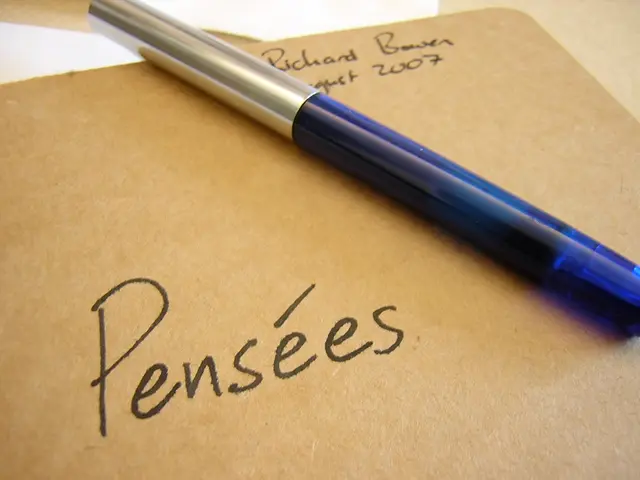Cow gut enzymes as a potential solution for plastic pollution?
Hey there! Let's dive into the world of science and sustainability, shall we?
Each year, we humans dump a staggering amount of plastic waste, including synthetic polyesters, into our landfills. The Environmental Protection Agency (EPA) reveals that United States landfills alone receive tens of millions of tons every year, making it a pressing global environmental issue.
But what if we could harness nature's power to help solve this problem? That's where a fascinating study conducted by researchers from three Austrian institutions – the University of Natural Resources and Life Sciences in Vienna, the Austrian Centre of Industrial Biotechnology, and the University of Innsbruck – comes into play.
The study, published in Frontiers in Bioengineering and Biotechnology, unearths compelling evidence that the microbiome found in cattle's digestive systems can potentially break down certain synthetic polyesters.
According to co-author Dr. Doris Ribitsch, "A huge microbial community lives in the rumen reticulum and is responsible for the digestion of food in animals, so we suspected that some biological activities could also be used for polyester hydrolysis."
It's worth noting that the digestive system in cattle is primarily designed for breaking down complex organic materials, like cellulose and plant-based compounds, rather than synthetic polyesters. However, during one phase of the digestive process, scientists surmise that certain enzymes in the rumen interact with water to separate chemical bonds in the natural polyesters that cattle consume while grazing. This process, known as hydrolysis, could potentially be effective in processing other polyesters found in plastic waste.
The research group took things a step further by incubating rumen liquid sourced from an Austrian slaughterhouse with multiple polyesters often used in manufacturing, including Poly(butylene-adipate-co-terephthalate) (PBAT), Poly(ethylene terephthalate) (PET), and Poly(ethylene furanoate) (PEF). Their experiments revealed improved polyester decomposition compared to previous studies focusing on isolated enzymes and microorganisms.
Though more studies are necessary to determine the feasibility on an industrial scale, the researchers are optimistic about the findings. "Due to the large amount of rumen that accumulates every day in slaughterhouses, upscaling would be easy to imagine," says Dr. Ribitsch.
While this potential method holds promise for plastic waste management, it's essential to recognize that focusing on developing technologies specifically designed for plastic degradation is crucial for large-scale solutions. After all, nature's wonders might provide us with a helping hand, but it's up to us to make the most of it!
- In the realm of science and sustainability, researchers from three Austrian institutions are exploring a potentially groundbreaking solution to the global plastic waste problem.
- The digestive systems of cattle, housing a vast microbial community responsible for breaking down complex organic materials, might hold the key to processing certain synthetic polyesters.
- Despite their primary function of digesting organic materials, certain enzymes in cattle's digestive system, during one phase of the process, may interact with water to separate chemical bonds in natural polyesters, a process known as hydrolysis.
- This process, which is being studied for its potential effectiveness in breaking down other polyesters found in plastic waste, was further investigated by the research group through incubation experiments using rumen liquid and common manufacturing polyesters like PBAT, PET, and PEF.
- Encouraging results showed improved polyester decomposition compared to previous studies, indicating that focusing on harnessing nature's enzymes could be a valuable addition to large-scale plastic waste management.
- Acknowledging the need for continued studies and industrial-scale solutions, Dr. Ribitsch emphasizes the promise this potential method holds for our health-and-wellness, fitness-and-exercise, and climate-change efforts, as we strive to preserve our environment through the wonders of environmental-science.








